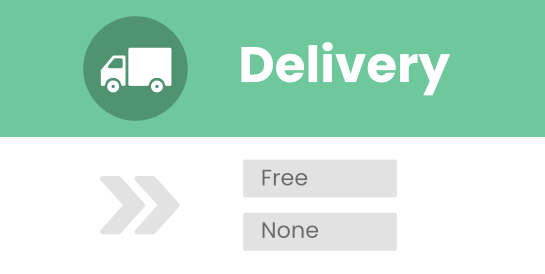Demo video: PoS Delivery
What it does
By default, when delivery orders are created through Point of Sale (PoS), they are immediately marked as completed and considered delivered.
In case the goods are not in stock or the customer has paid and wants to have it delivered to their door, this module allows you to select the delivery method and the estimated delivery time for the order from the Point of Sale interface.
Note: Delivery scheduling is only available for PoS that have Real-Time Inventory Management enabled.
Key features
On the PoS screen, during order validation, the employee can create a delivery order and select the following information:
- Delivery method.
- Planned delivery date.
Supported Editions
- Community Edition
- Enterprise Edition
Installation
- Navigate to Apps.
- Search with keyword to_pos_delivery.
- Press Install.
Instruction
Instruction video: PoS Delivery
To use this module, you can learn more about the PoS sales process of the Point of Sale app.
Create a PoS sales order with a future delivery date
After installing the module, navigate to Configuration > Point of Sale, at the Inventory section, select In real time.
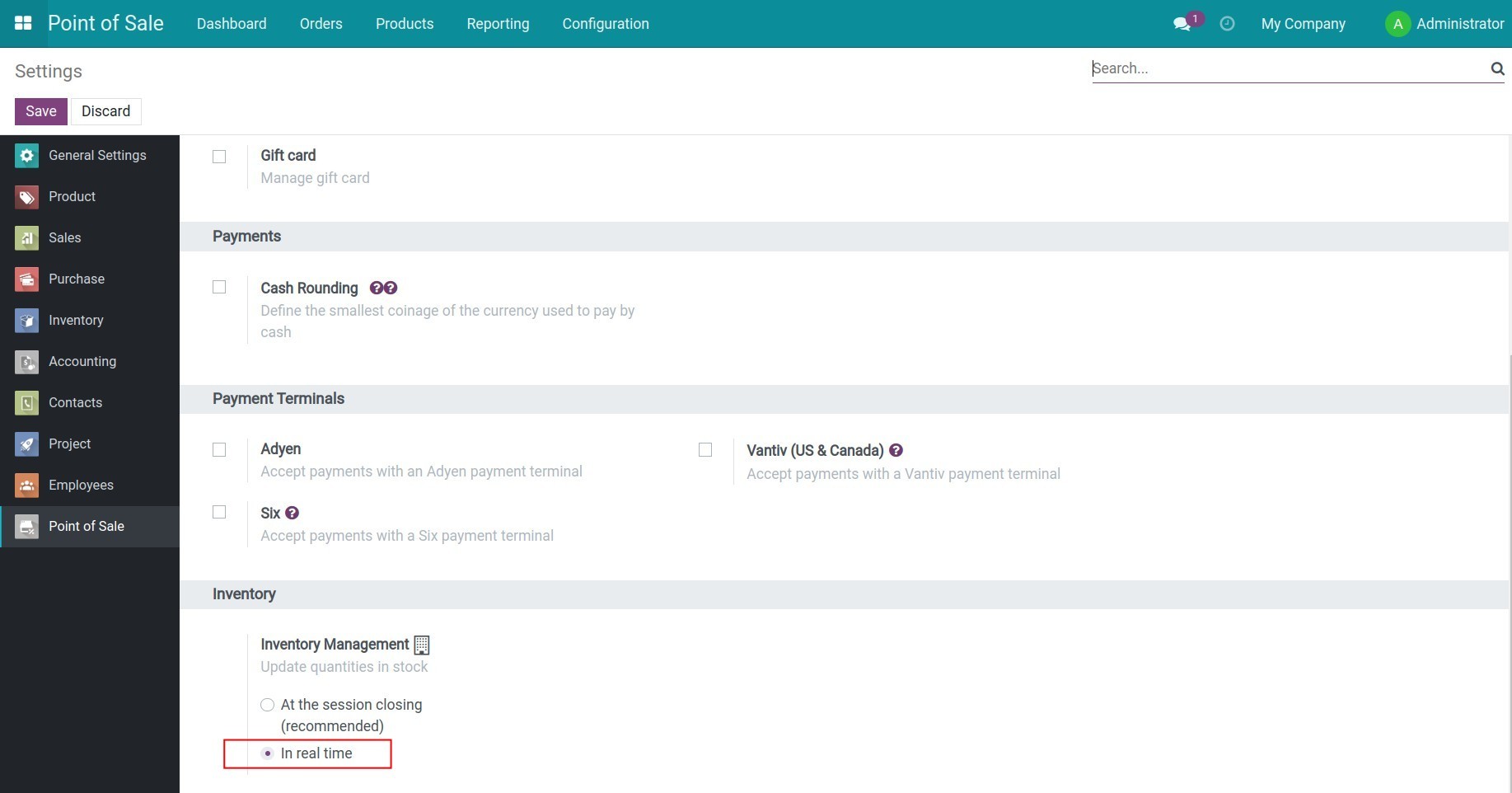
Navigate to Point of Sale > Dashboard, and press the New Session button to open a new sale session.
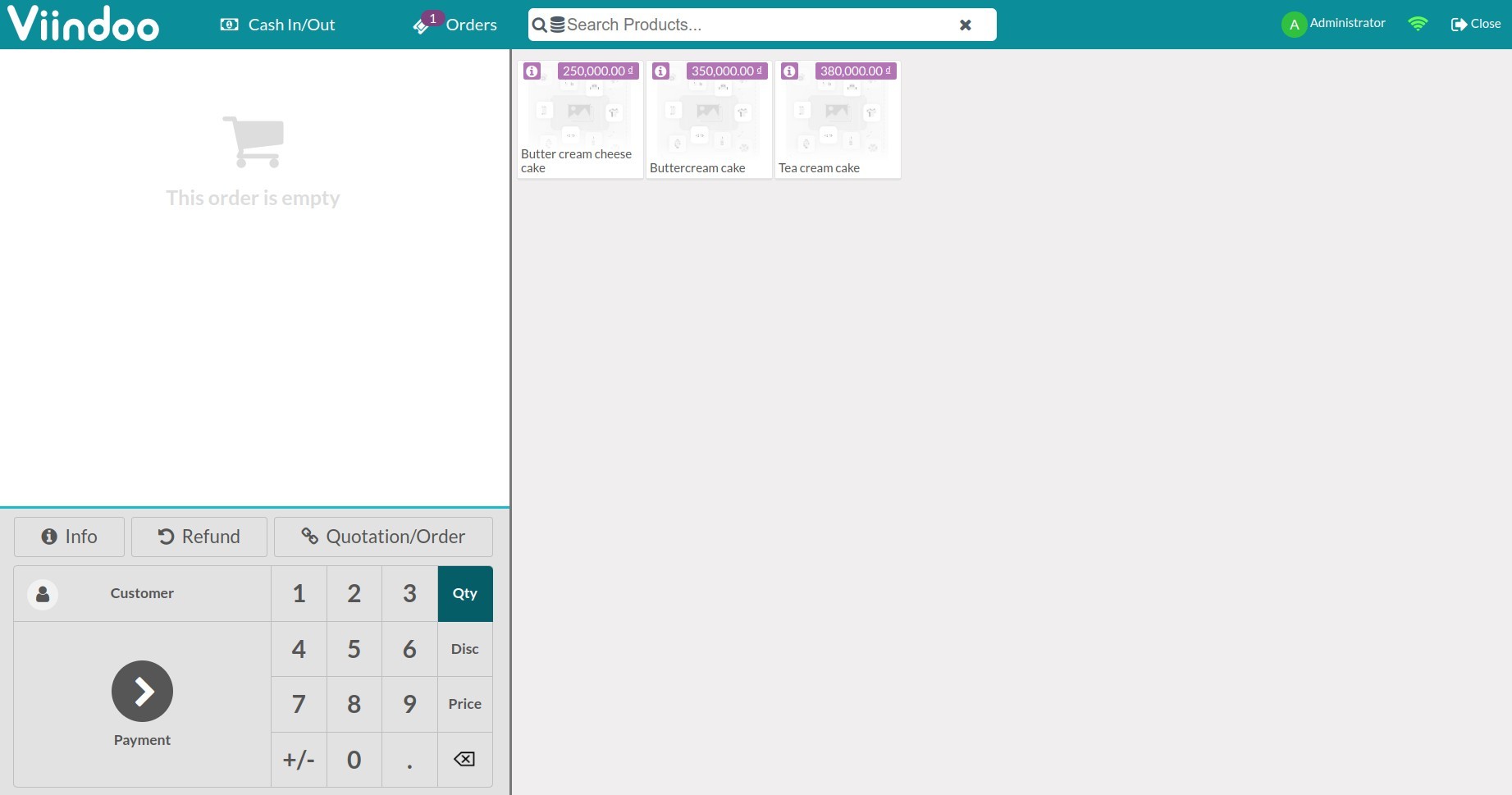
Create a PoS sales order and press Payment. The Delivery button will be added, allowing user to select the delivery method and the planned delivery date.
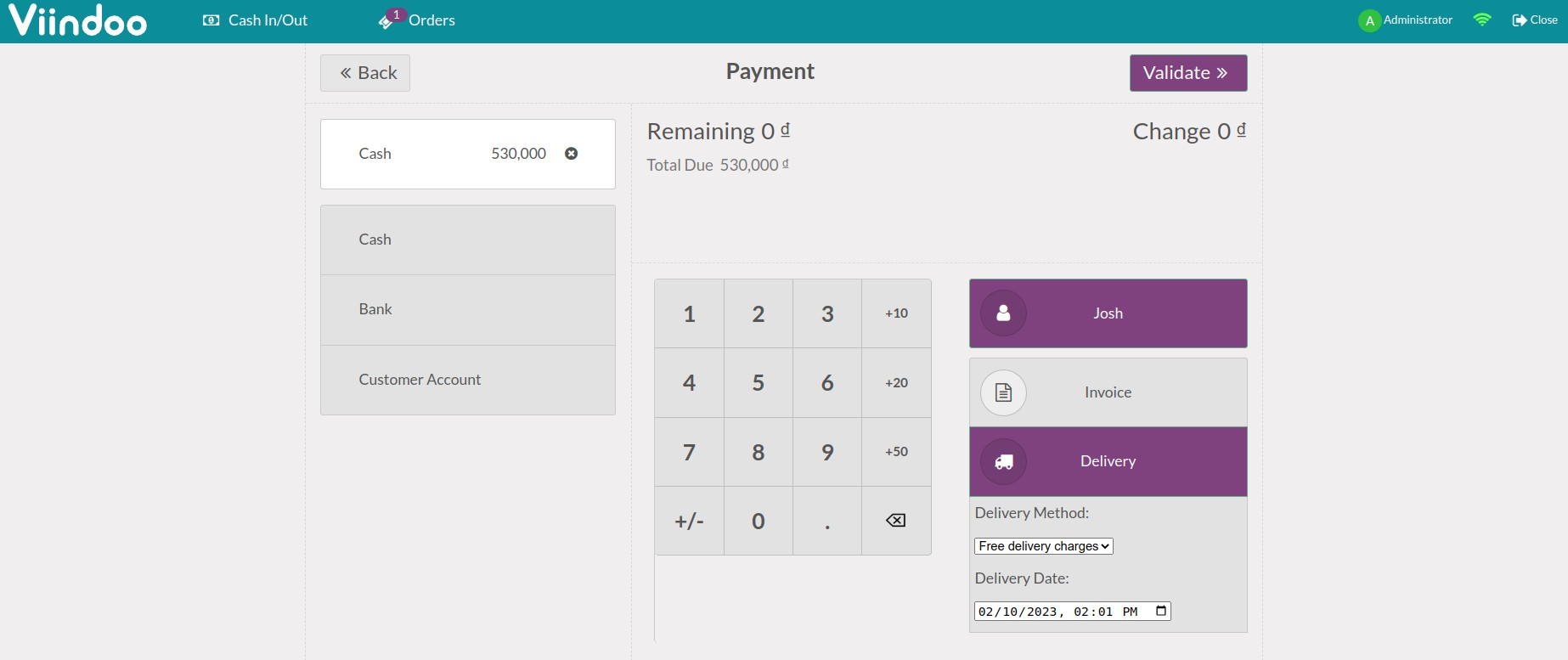
Press Validate to complete the order. The system will show you the receipt.
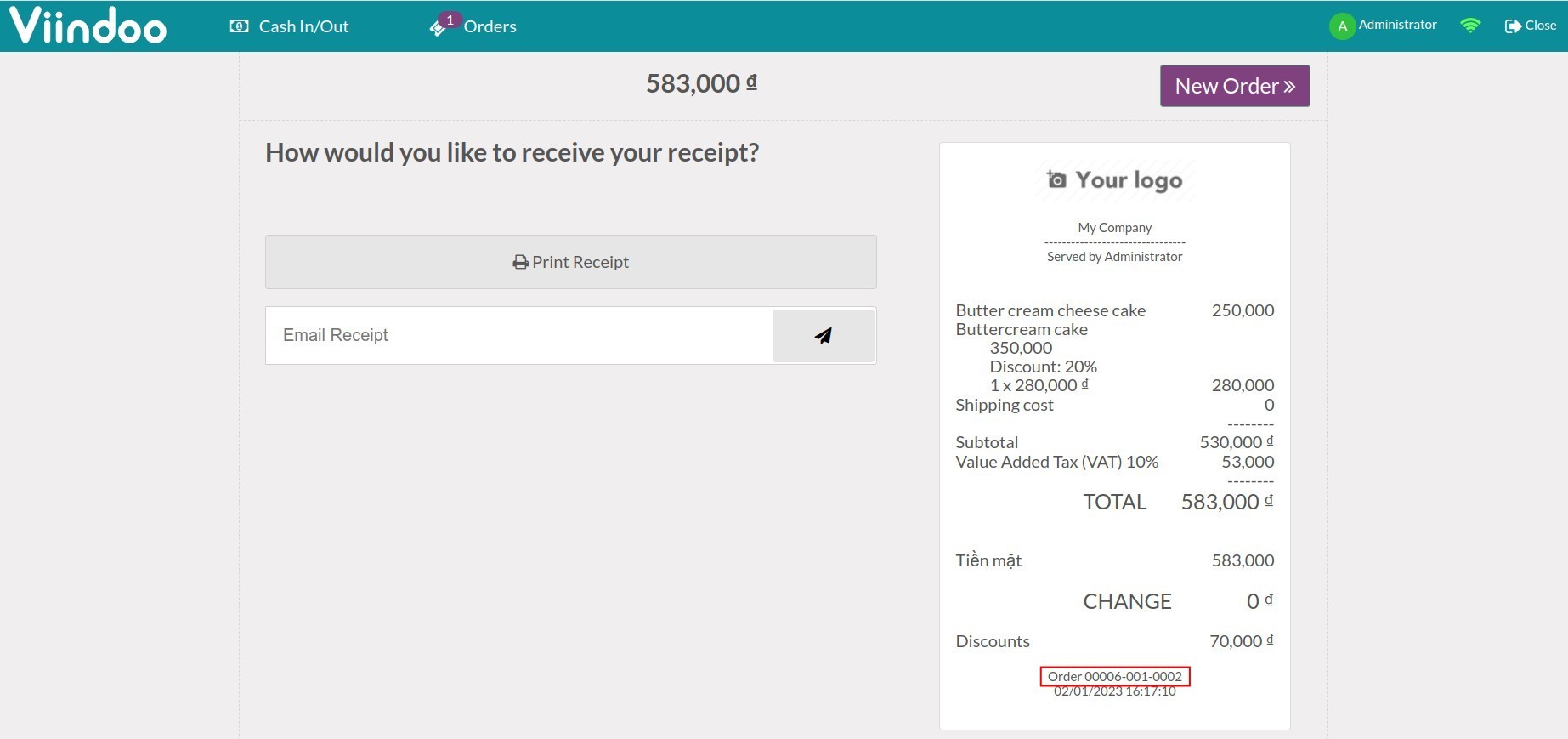
Check the sales order in the system
Navigate to Point of Sale > Orders > Orders, and open the corresponding order. Delivery Date suggested on the sales order will be the delivery date you select on the Point of Sale app.
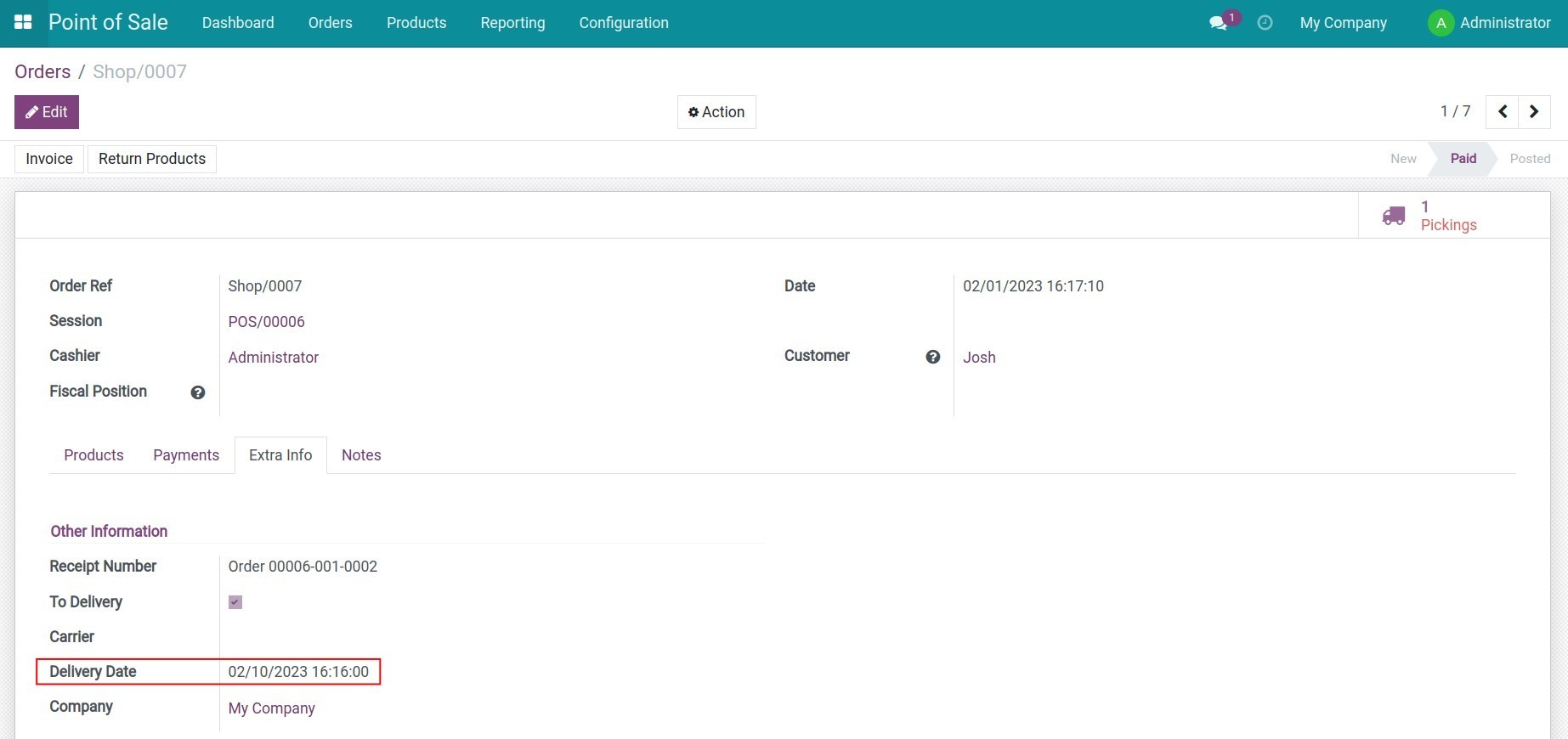
After the delivery, go to the Inventory app, at the PoS Order section, press the To Process button and select the corresponding transfer slip, press the Validate button to complete the delivery.
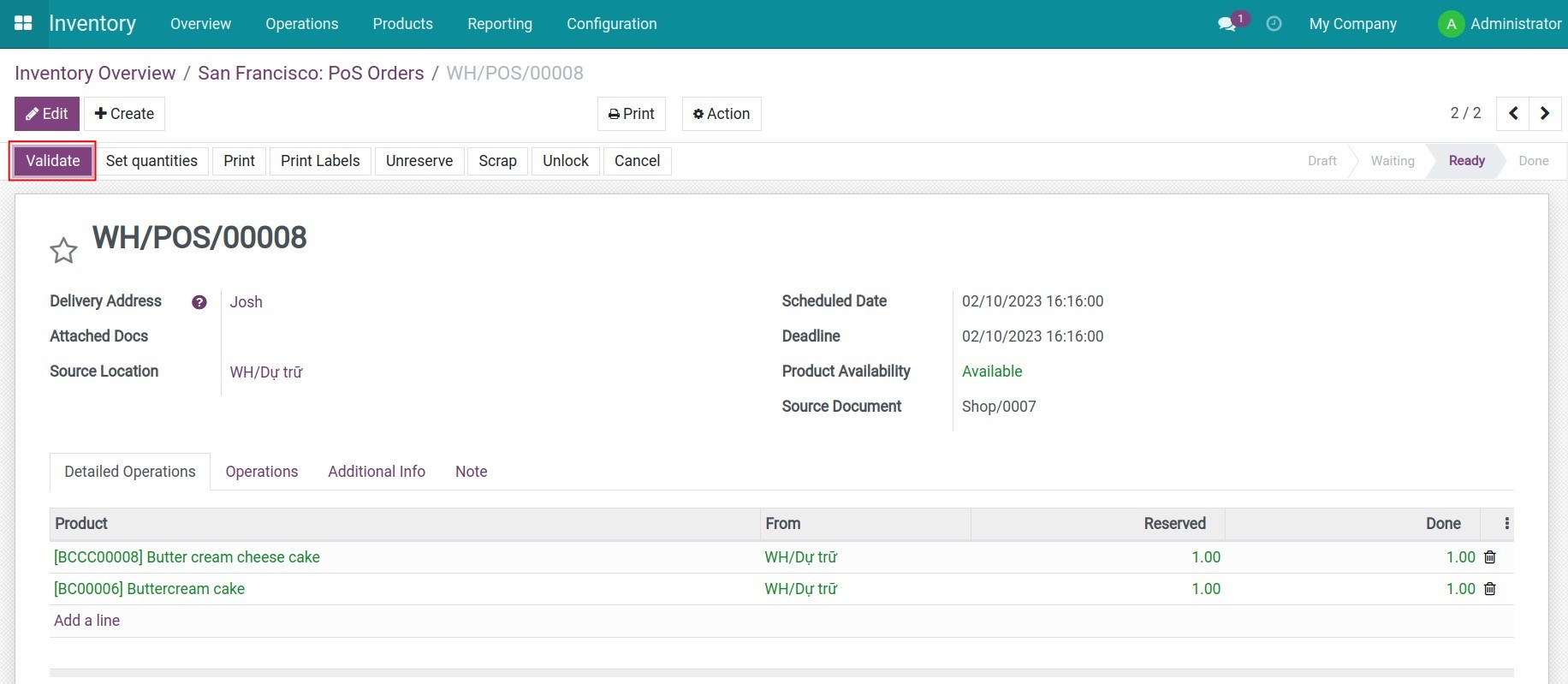
This software and associated files (the "Software") may only be
used
(executed, modified, executed after modifications) if you have
purchased a
valid license from the authors, typically via Odoo Apps,
or if you
have
received a written agreement from the authors of the
Software (see the
COPYRIGHT file).
You may develop Odoo modules that use the Software as a library
(typically
by depending on it, importing it and using its
resources), but
without
copying any source code or material from the
Software. You may distribute
those modules under the license of your
choice, provided that this
license
is compatible with the terms of
the Odoo Proprietary License (For
example:
LGPL, MIT, or proprietary
licenses similar to this one).
It is forbidden to publish, distribute, sublicense, or sell
copies of the
Software or modified copies of the Software.
The above copyright notice and this permission notice must be
included in
all copies or substantial portions of the Software.
THE SOFTWARE IS PROVIDED "AS IS", WITHOUT WARRANTY OF ANY KIND,
EXPRESS OR
IMPLIED, INCLUDING BUT NOT LIMITED TO THE WARRANTIES OF
MERCHANTABILITY,
FITNESS FOR A PARTICULAR PURPOSE AND
NONINFRINGEMENT. IN NO EVENT
SHALL THE
AUTHORS OR COPYRIGHT HOLDERS
BE LIABLE FOR ANY CLAIM, DAMAGES OR OTHER
LIABILITY, WHETHER IN AN
ACTION OF CONTRACT, TORT OR OTHERWISE,
ARISING
FROM, OUT OF OR IN
CONNECTION WITH THE SOFTWARE OR THE USE OR OTHER
DEALINGS IN THE
SOFTWARE.
